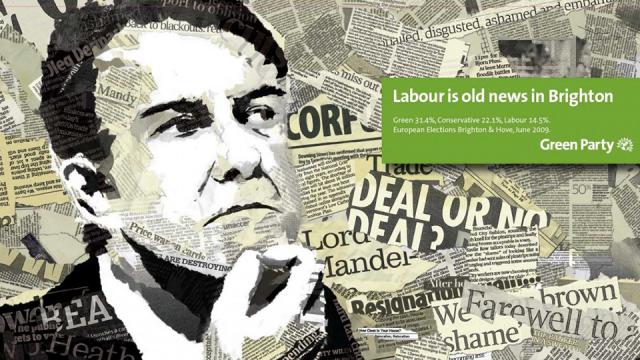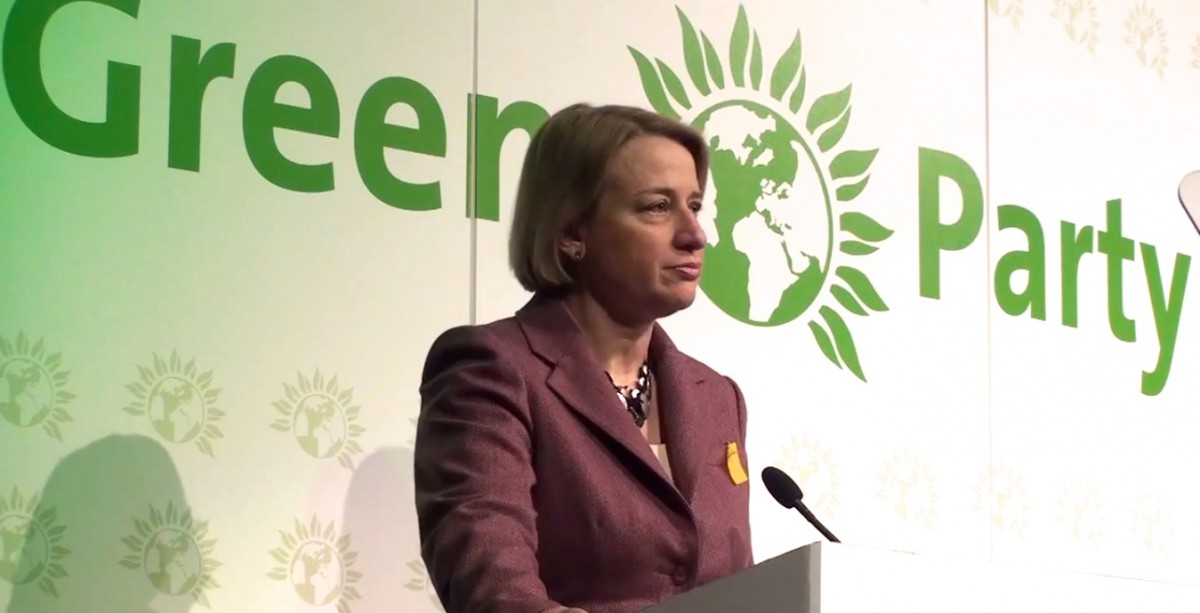
As the Green Party experiences a huge surge in popularity in the run-up to Britain's General Election in May, its leaders are proposing an alternative policy to unemployment that would make sure nobody lives in fear of losing their home.
On a recent political TV show, the leader of the U.K. Green Party, Natalie Bennett, said she would spend billions giving every adult – whether employed or unemployed – a citizen’s income. The income would be worth £72.40 ($110) a week, which is the current value of the jobseeker’s allowance.
Bennett said the policy would mean that nobody lives with the fear of losing their house or being unable to feed themselves and their family.
The Green Party leader also said the state would recover some of the cost of the citizen’s income, since payments would be stopped once an individual’s income reached a certain level.
A Renewed Interest in Green Party Policies
The fact the policy is now being discussed and debated on mainstream media platforms like the Andrew Marr Show, broadcast on the BBC by former BBC political editor Andrew Marr, shows how far the Green Party has come – and how fast its influence on British politics has grown.
The policy significantly contrasts to the Coalition Government’s universal credit scheme, which it plans to implement across the country. Universal credit is intended to create a more simplified single benefit to replace existing benefits. Under the plan, claimants will receive monthly payments that they use to pay rent and other bills.
However, since the scheme was trialed in the county of Cheshire in the north of England, it has been beset with problems. According to Peter Fitzhenry, director of Golden Gate Housing, a social landlord organization in Cheshire, payments are so “haphazard” that 92% of those on social housing with Golden Gate are now in rent arrears.
Approximately half of housing association tenants on housing benefits in the U.K. are in rent arrears, according to the Department for Work and Pensions.
“The problem seems to be that the scheme is running but they’re making it up as they go along,” said Fitzhenry.
The problems created by the universal credit have also been pinned to the fact that many claimants are struggling to cope with monthly budgeting. Experts, however, deem the spiraling debt has been created by computer glitches and administration errors that have caused the DWP to not make payments.
In the meantime, people have had their homes repossessed as the housing benefits supposedly being paid by the DWP to the housing association have not gone through.
Homelessness on the Rise
Amid all this, homelessness in the U.K. has risen sharply under the current Coalition Government. In 2013, a report by the Joseph Rowntree Foundation and Crisis showed that the number of homeless people in England climbed for three years in a row.
The research proved that those sleeping on the streets had increased in England by 6% in 2013, and by 13% in London, pushing the growth of homelessness in the capital to 60% in just two years. The report said the rise in homelessness was partly due to benefit cuts and a shortage in housing.
A Surge in Food Bank Reliance
Other signs that the government’s tough austerity measures are hitting society’s most vulnerable can be seen in the surge of people now relying on food banks across the U.K.
As Occupy.com reported last year, the crisis of U.K. families going hungry became so severe that the Red Cross was called in to distribute food aid nationwide for the first time since the Second World War.
The Green Party’s citizen’s income plan would eradicate these problems, both homelessness and hunger, said its leaders. “What [citizen’s income] does is provide a sense of security,” said Bennett.
“No one needs to live in fear. No one needs to think I have just been [benefit] sanctioned, I am not going to be able to put food on my table, I am going to lose my house next week.”
Rising to Prominence
In 2010, Caroline Lucas became Britain’s first Green MP, winning a slim margin of votes in Brighton in the south of England. Since then the Green Party has enjoyed an unprecedented surge in popularity.
In 2014 alone the party saw its membership swell by 28%. In a recent poll of voting intention at the 2015 General Election, Greens pulled level with the Liberal Democrats at 8% – a 7% rise from the 2010 elections that saw the Green Party gain just 1% of votes.
The recent gush of support has been attributed to several factors, including the party's increased professionalism, smarter public relations, and the growing financial support it receives from trade unions.
At a party conference, Bennett focused her speech primarily on the cost of living and public services, pledging to fight for a higher minimum wage. She also called companies that dodged taxes “parasites,” reprimanded the big banks, and accused chain stores of “cutting the heart out of so many cities, towns and villages.”
At the same time, Conservatives are being condemned for introducing measures aimed at the poor that many consider “more brutal” than those introduced by Thomas Cromwell in the Middle Ages.
Labour is meanwhile accused of indecisiveness about the economy, support for the Liberal Democrats is waning, and the U.K. Independence Party (UKIP) is widely scorned for its political incorrectness. So it shouldn't be surprising that a party which promises plausible, urgent alternatives to relieve debt and poverty – instead of propping up the current policies that have escalated those problems – gets support at the polls in May.
Stay tuned for follow-up articles covering the Green Party resurgence in Britain.
3 WAYS TO SHOW YOUR SUPPORT
- Log in to post comments












